This article is read by Eunice Wong, a Juilliard-trained actor, featured on Audible's list of Best Women Narrators. Her work is on the annual Best Audiobooks lists of the New York Times, Audible, AudioFile, & Library Journal. www.eunicewong.actor
Text originally published Nov. 16, 2024
An Unjust Burden — by Mr. Fish
I just got off the phone with the Canadian feminist and activist Lee Lakeman. She is in hospice. The battles she has spent her life fighting, including her advocacy for impoverished aboriginal women prostituted in desolate urban landscapes such as the Downtown Eastside in Vancouver, which once had the highest HIV-infection rate in the West, lay behind her. When she is gone, we are the ones who will be impoverished, bereft of her searing intellect and unwavering fight for justice. She will leave in her wake a sterling example of what it means to live the moral life, a life of meaning.
“Everything you and I have spent our life fighting for is worse,” she said to me ruefully over the phone.
Yes. Worse. But her clear, steely-eyed view of the world, her understanding of power and how it works, never dampened her commitment or passion. To fight battles in the face of almost certain defeat, to demand justice for the oppressed no matter the cost, and to know that despite all your efforts, the forces of oppression are growing stronger and crueler, is the essence of nobility.
Prostitution, she argues, is the quintessential expression of global capitalism. Our corporate masters are pimps. We are all being debased and degraded, fleeced economically and stripped of basic civil liberties and political agency, to service the cruel and lascivious demands of the corporate elite. Jeffrey Epstein surrounded himself not only with prostituted underage girls, but the powerful, including Donald Trump, who 27 women have accused of sexual misconduct, along with Bill Clinton and Prince Andrew. The hard drives found in Epstein’s safe at his Manhattan mansion, which purportedly included videos of sexual encounters filmed on his properties, have disappeared. It is unlikely they will reappear. The wretched of the earth are reduced in the neoliberal model to serving the desires and fetishes of the wealthy and the privileged.
The widening income disparities, the collapse of the social contract and the grotesque entitlement that comes with celebrity, political power and wealth, has deformed all institutions, including the courts, into instruments that serve the exclusive interests of the entitled. The fight for equal pay, equal distribution of wealth and resources, access to welfare, legal aid that offers adequate protection under the law, social services, job training, healthcare and education services, have been so degraded, they barely exist. This is especially true for poor women and girls.
When the elites tire of us, or when we are no longer of use, we are discarded, like the women and girls men exploit. We are being transformed into serfs on a global plantation ruled by corporations and oligarchs. The fight against prostitution, Lee says, is not only the fight for women and girls, but the fight against a dehumanizing neoliberalism. Poverty, she reminds us, is not an aphrodisiac. Those who sell their bodies most often do so out of desperation. They are usually women and girls of color trafficked from the Global South, as well as refugees from countries at war such as Ukraine. They end up physically injured, with a variety of diseases and medical conditions, and suffer severe emotional trauma. The average age at which a girl enters prostitution is estimated to be 12 to 14. Their life spans are often short.
This fight against prostitution – Lee seeks to decriminalize those who are prostituted and bring criminal charges against the clients, pimps and traffickers – along with her insistence that we should not abolish the police but strengthen its mandate to go after those who abuse women and girls, makes her an anathema to the left. But she has as little time for a feckless left as it does for her. The left, with its woke politics, lack of class consciousness and naiveté about “sex work,” she argues, is bankrupt.
“Selling your body for sex is not a choice,” she says. “It is not about freedom. It is an act of economic slavery.”
You can see an interview I did with Lee and Alice Lee, one of the founders of Asian Women Coalition Ending Prostitution, here.
I met Lee in March 2015. I did not know that my few hours with her would trigger a firestorm. I was in Vancouver to give a lecture. I had admired her as one of Canada’s most important radicals and collective member of Vancouver Rape Relief & Women’s Shelter. I arranged to speak with her and other women from the shelter along with the women who run Asian Women Coalition Ending Prostitution the morning before my talk in the shelter’s storefront office.
In the 1970s, Lee opened her home in Ontario to abused women and their children. By 1977 she was in Vancouver working with Vancouver Rape Relief & Women’s Shelter, which was founded in 1973 and is the oldest rape crisis center in Canada. She built alliances with groups such as the Aboriginal Women’s Action Network and Asian Women Coalition Ending Prostitution to mount court cases to challenge the prostitution industry.
Lee and the shelter refuse to give the provincial government access to victims’ files in order to protect the anonymity of the women. They also deny this information to the courts, in which, Lee says, “defense attorneys try to discredit or bully women complainants in criminal cases of male violence against women.” This defiance has led to losses of government funding.
“It is still impossible to work effectively in a rape crisis center or a transition house and not be breaking the Canadian law on a regular basis,” Lee says.
But Lee is not only the bête noire of the state, but of liberals who, she says, think physical abuse of a woman is abhorrent if it occurs in a sweatshop, but is acceptable in a rented room, an alley, a brothel, a massage parlor or a car.
She stands with the feminist Andrea Dworkin who writes:
Capitalism is not wicked or cruel when the commodity is the whore, profit is not wicked or cruel when the alienated worker is a female piece of meat; corporate bloodsucking is not wicked or cruel when the corporations in question, organized crime syndicates, sell cunt; racism is not wicked or cruel when the black cunt or yellow cunt or red cunt or Hispanic cunt or Jewish cunt has her legs splayed for any man’s pleasure; poverty is not wicked or cruel when it is the poverty of dispossessed women who have only themselves to sell; violence by the powerful against the powerless is not wicked or cruel when it is called sex; slavery is not wicked or cruel when it is sexual slavery; torture is not wicked or cruel when the tormented are women, whores, cunts. The new pornography is left-wing; and the new pornography is a vast graveyard where the Left has gone to die. The Left cannot have its whores and its politics too.
Lee battles a world going numb, a world banishing empathy, a world where solidarity with the oppressed and marginalized is increasingly a foreign concept. She warns that with the political and economic upheavals ahead, caused by climate change, the rise of authoritarian governments, misogynist demagogues and the breakdown of global capitalism, the exploitation of women and girls will explode.
“We have never stopped having to deal with misogyny among activists,” she once told me. “It is a serious problem. How do we talk to each other as movements? We want to talk about coalition building. But we want new formations to take women’s leadership seriously, to use what has been learned in the last 40 or 50 years. We deal with the most dispossessed among women. And it is clear to us that every sloppy uprising, or every unplanned, chaotic uprising, devastates poor women. We need to have thoughtfulness built into our practices of revolt. We do not want the traditional right-wing version of law and order. We work against it. We do not call for a reduction in men’s rights. But, without an organized community, without state responsibility, every woman is on her own against a man with more power.”
“We are seeing a range of violence against women that generations before us never saw — incest, wife abuse, prostitution, trafficking and violence against lesbians,” she went on. “It has become normal. But in periods of chaos, it gets worse. We are trying to hang on to what we know about how to care for people, what we know about working democratically, about nonviolence, yet not be subsumed by the state. Yet we have to insist on a woman’s right not to face every man alone. We have to demand the rule of law. Globalization and neoliberalism have accelerated a process in which women are being sold wholesale, as if it is OK to prostitute Asian women in brothels because they are sending money home to poor families. This is the neoliberal model proposed to us. It is an industry. It is considered OK…just a job like any other job. This model says people are allowed to own factories where prostitution is done. They can own distribution systems for prostitution. They can use public relations to promote it. They can make profits. Men who pay for prostitution support this machinery. The state that permits prostitution supports this machinery. The only way to fight capitalism, racism and protect women is to stop men from buying prostitutes. And once that happens, we can mobilize against the industry and the state to benefit the whole anti-racist and anti-capitalist struggle. But men will have to accept feminist leadership. They will have to listen to us. And they will have to give up the self-indulgence of prostitution.”
“The left broke apart in the 1970s over the failure to contend with racism, imperialism and women’s freedom,” she told me. “These are still the fault lines. We have to build alliances across these gaps. But there are deal breakers. You can’t buy women. You can’t beat women. You can’t expect us to coalesce on the ‘wider’ issues unless you accept this. The problem with the left is it is afraid of words like ‘morality.’ The left does not know how to distinguish between right and wrong. It does not understand what constitutes unethical behavior.”
She warns that backing movements such as Defund the Police are counterproductive. The problem is not policing, the problem is the misuse of the police and the courts to protect the powerful, especially powerful men.
“In the progressive left it is popular to be anti-state,” she said. “It is not popular to say we have to press the state to carry out particular policies. But all resistance has to be precise. It has to reshape society step by step. We can’t abandon people. This is hard for the left to get. It is not, for us, a rhetorical position. It comes from our answering the rape crisis line every day. There is cheap, thin rhetoric from the left about compassion for the prostituted, without ever doing anything concrete for the prostituted.”
She has been boycotted. Grants and funds are denied, especially since the shelter does not allow “male bodied” people who identify as women to take refuge there. Many in the shelter are victims of rape and they need to know, Lee argues, that they can heal and recover in a space where biological males are not present. She has been shamed at public events, attacked as homophobic, “transphobic,” hyper-moralistic, pro-state, “hateful” of men and “anti-sex.”
The battle she and the other feminists fight have its origins in not only patriarchy, but settler colonialism and imperialism, systems of power and exploitation where women are viewed as commodities and rape is ubiquitous.
“For women of color, prostitution is an extension of imperialism,” Alice Lee said. “It is sexualized racism. Prostitution is built on the social power disparities of race and class. Women of color are disproportionately exploited through prostitution. This racism is not acknowledged by those in First World countries, including the left. When the left argues prostitution is a choice, its purpose is to cement the sexualized racism and the status quo of men’s access to our bodies. Sexualized racism renders us invisible and irrelevant. It makes it impossible for us to be considered human.”
“The global trade, particularly of Asian women, has been steadily worsened by the neoliberal policies of First World countries,” said Alice, part of the Asian Women Coalition Ending Prostitution. “These policies are grounded in social disparities of race, class and gender. They create conditions that force poor women to migrate and funnels women of color into prostitution. Those who support legalizing prostitution often argue that trafficking is bad, but prostitution is acceptable. But trafficking and prostitution are inseparable.”
Women and girls from indigenous communities are especially vulnerable.
“Indigenous women get beat up and killed because of prostitution more than anyone else,” Lee told me. “They have less access to police and less access to support. This is where the rubber hits the road. If you’re not willing to arrest men for endangering the prostituted indigenous women in the Downtown Eastside, how the hell do you call yourself a leftist or a revolutionary? How do you call yourself a decent human being? And if the people around you don’t call you out, who are you to say you’re leading us to a better future or a better life?”
“When some women are bought and sold,” said Hilla Kerner, who when I interviewed her had worked at the shelter for 10 years, “all women can be bought and sold. When some women are objectified, all women are objectified.”
I included the interviews, which I have quoted from here, in a column titled “The Whoredom of the Left.” Liberals were not pleased. I was scheduled to give the keynote address six weeks later at Simon Fraser University for a conference on the climate crisis and the efforts to halt the extraction of fossil fuels. The conference organizers disinvited me. They said they would pay me the lecture fee, but I should not bother attending.
What they did not anticipate was that Lee and other feminists would mount a nationwide campaign to shame the university. I was reinvited but my lecture, scheduled in a large auditorium, was moved to a smaller hall that sat 300 people. My class visits were canceled. Those on the wait-list were told not to come to the event because there were no seats. There was a reception, but when I arrived it was boycotted.
I have faced this kind of shunning and hostility before. It is not pleasant. But this time I did not face it alone. Ten women from the shelter and Asian Women Coalition Ending Prostitution, most of whom crashed the event without tickets, joined me. This public solidarity and willingness to face an antagonistic crowd speaks not only to their courage, but their integrity. I was very moved. Of course, I focused the talk on the exploitation of women and girls.
“Hedges’ Keynote Sparks Controversy,” read the headline in the Watershed Sentinel.
“Advocates from both camps chimed in online, some radical feminists denounced Hedges, and a few State of Extraction organizers tried to cancel his opening address,” the article read. “But attend he did, and as to be expected from an unbridled social critic, Hedges’ keynote address on Friday night continued to rattle some chains. Eloquently and with the rolling cadence of a seasoned preacher, Hedges described how the extraction industry gives predatory power to men and launched into a graphic account of sexual exploitation of women and girls, (particularly those of color), under global capitalism. He gave a callout to men and the left to ‘stand with all who are turned into objects, especially girls and women’.”
“What is done to girls and women through prostitution is a version of what is done to all of those who do not sign on to the demented project of global capitalism,” I told the crowd. “And if we have any chance of fighting back, we will have to stand up for all the oppressed, all of those who have become prey. To fail to do this will be to commit moral and finally political suicide. To turn our backs on some of the oppressed is to fracture our power. It is to obliterate our moral authority. It is to fail to see that the entire system of predatory exploitation seeks to swallow and devour us all. To be a radical is to stand with all who are turned into objects, especially girls and women whom the global community, and much of the left, has abandoned.”
Lee’s clash with the university, a clash in which she triumphed, was national news. There was a lot of press.
“I know we disagree on this issue, but we have most everything else in common,” one of the reporters said, turning to Alice Lee.
Alice stared at him icily.
“You and I have nothing in common.” she said.

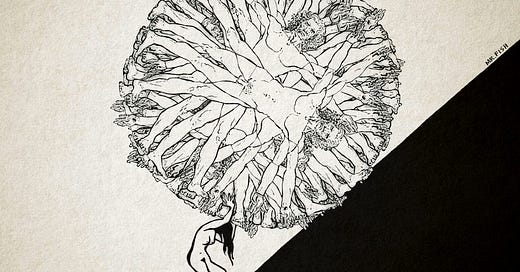






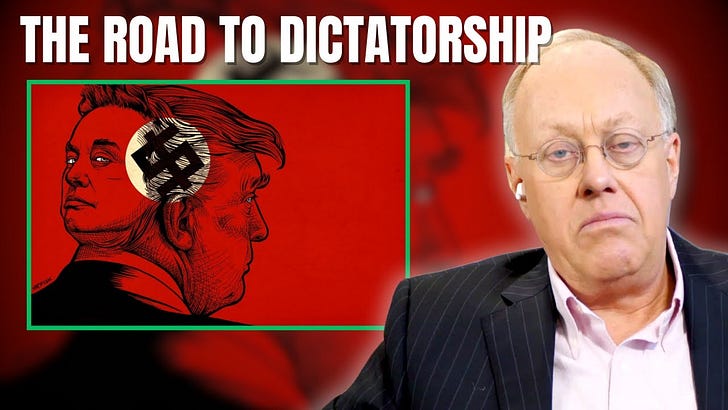
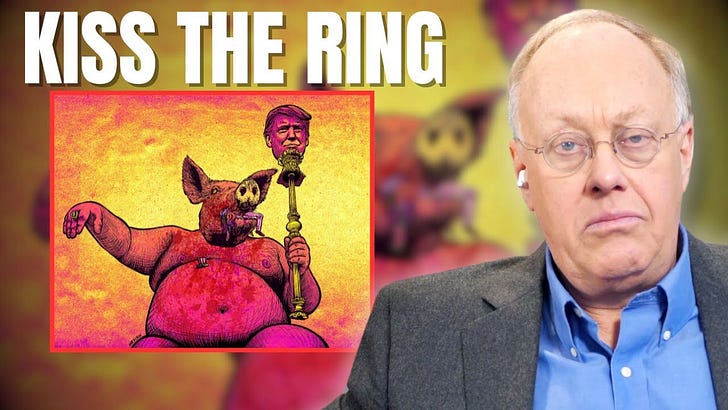
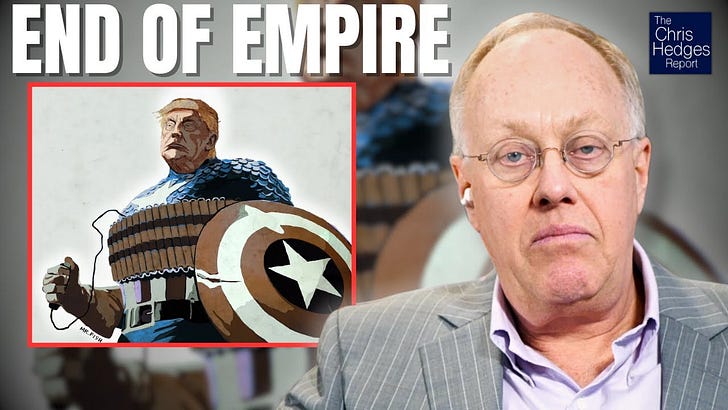
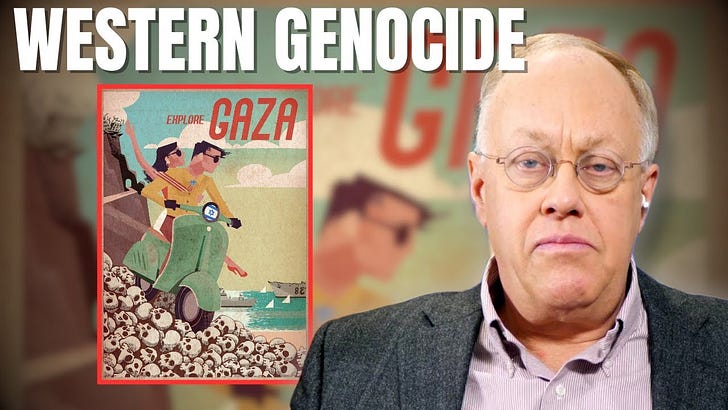

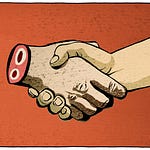


Share this post